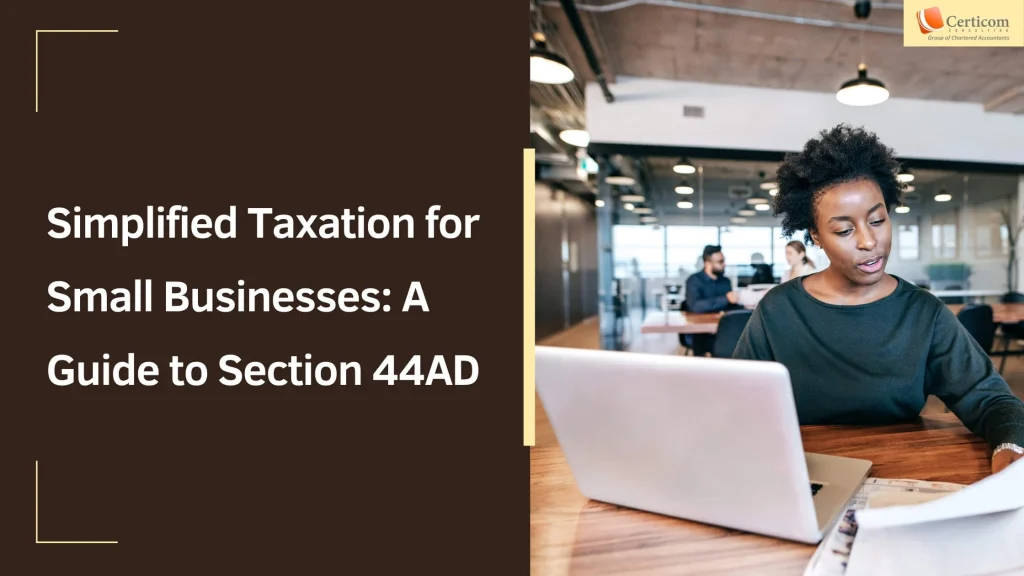Simplified Taxation for Small Businesses: A Guide to Section 44AD

Tax compliance in India can be a daunting task, particularly for small businesses. Maintaining detailed financial records and going through complex tax computations can be time-consuming and costly. To simplify tax procedures and reduce the compliance burden, the Income Tax Act introduced the Presumptive Taxation Scheme under Section 44AD. This provision allows small businesses to pay tax on a predetermined percentage of their turnover, eliminating the need for extensive bookkeeping and audits.
Who Can Opt for Section 44AD?
Section 44AD is applicable to specific taxpayers, including:
Resident Individuals
Hindu Undivided Families (HUFs)
Partnership Firms (excluding LLPs)
To qualify, the total turnover or gross receipts of the business should not exceed ₹2 crores in a financial year. However, if at least 95% of the business transactions are conducted digitally, the turnover threshold is extended to ₹3 crores.

Businesses Not Eligible for Section 44AD
Certain categories of businesses and professions are excluded from this scheme:
Professionals covered under Section 44AA (such as doctors, accountants, engineers, etc.).
Individuals earning commission or brokerage income.
Businesses operating as agencies.
Presumptive Income Calculation
Under this scheme, income is presumed based on a percentage of the turnover or gross receipts:
8% for cash transactions.
6% for digital receipts (payments received via banking channels on or before the due date under Section 139(1)).
If digital receipts are received after the due date, the presumptive income will be 8% instead of 6%.
Important Considerations
Taxpayers opting for Section 44AD cannot claim deductions under Sections 30 to 38 of the Income Tax Act.
Depreciation on assets is deemed to have been allowed automatically.
Current year and brought forward losses can be set off against presumptive income.
Advance Tax Requirement
Unlike other businesses that pay advance tax in installments, taxpayers under Section 44AD need to pay the entire advance tax in one installment by March 15 of the financial year.

Bookkeeping and Audit Requirements
Opting for Section 44AD simplifies compliance by eliminating the need to maintain detailed books of accounts or undergo an audit. However, these requirements become mandatory under the following circumstances:
If the taxpayer declares profits lower than 8% (or 6% for digital transactions).
If the taxpayer opts out of the scheme after opting in, they cannot re-enter the scheme for the next five financial years.
If the total taxable income exceeds the basic exemption limit, maintaining books and undergoing a tax audit under Section 44AB becomes compulsory.
Conclusion
Section 44AD provides small businesses with a simplified taxation structure, reducing their compliance burden while ensuring tax obligations are met. By eliminating the need for extensive bookkeeping, this scheme makes tax filing easier and more cost-effective. However, taxpayers must carefully assess their financial position before opting in, as exiting the scheme restricts re-entry for a five-year period. For businesses seeking ease of tax compliance, Section 44AD remains a valuable option.
Related Post
A Beginner’s Guide to E-Filing Income Tax Return for FY 2024-25
Faking Tax Deductions? You Could Be Penalised Up To 200% Under Income Tax Rules
Book A One To One Consultation Now For FREE
How can we help? *




